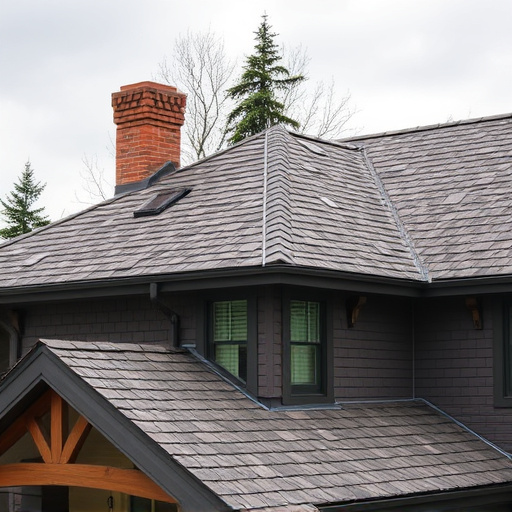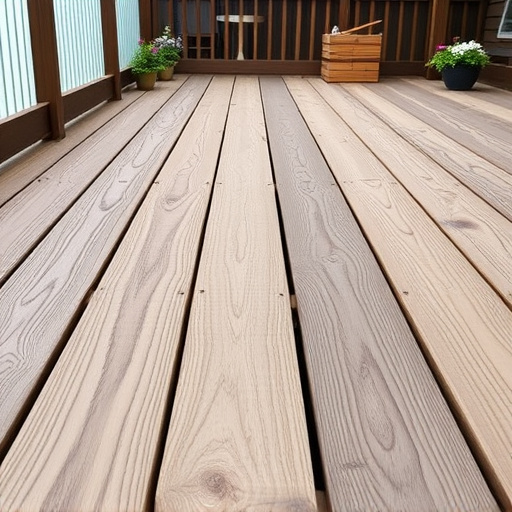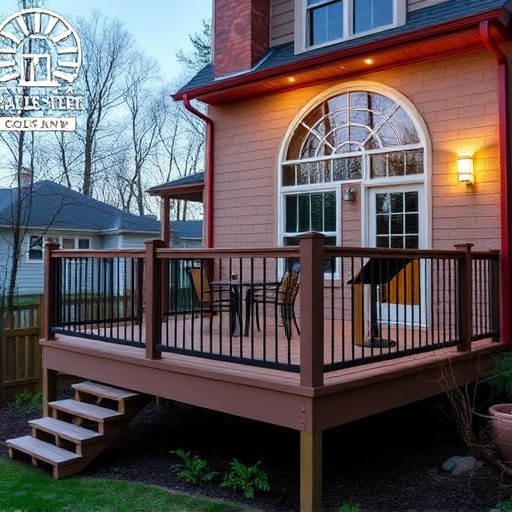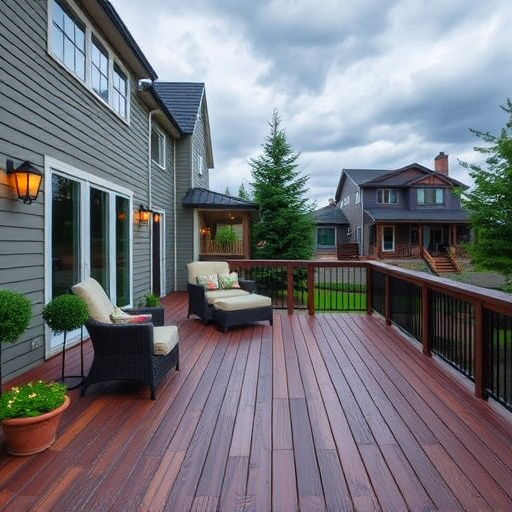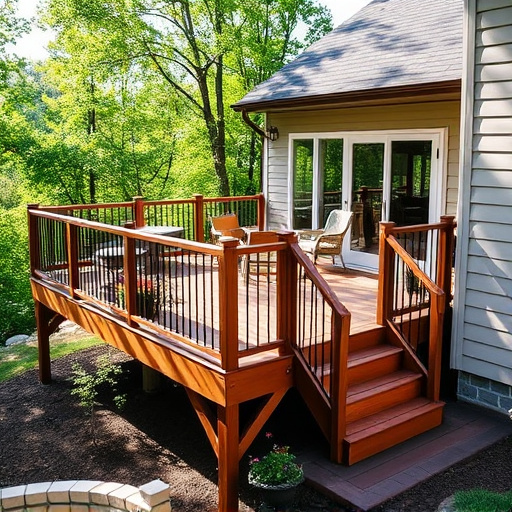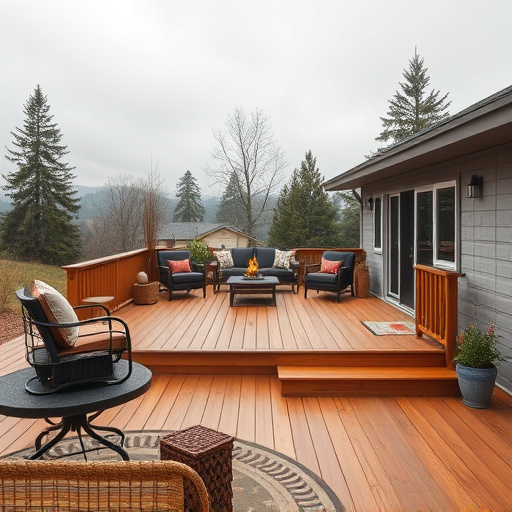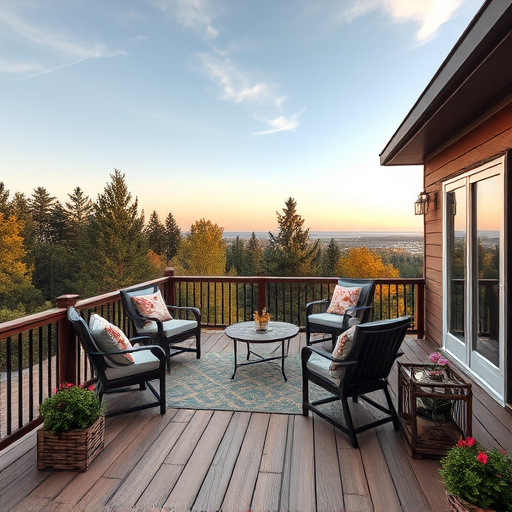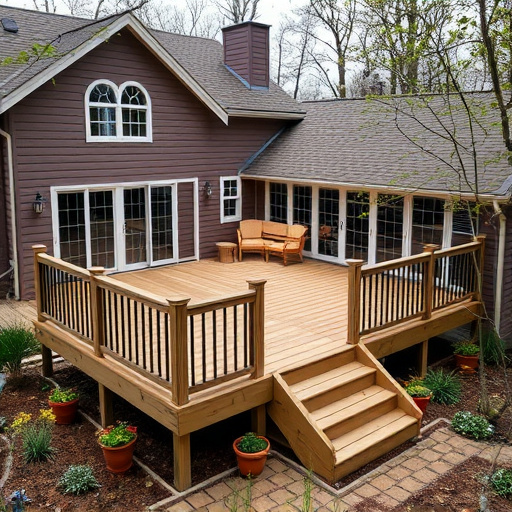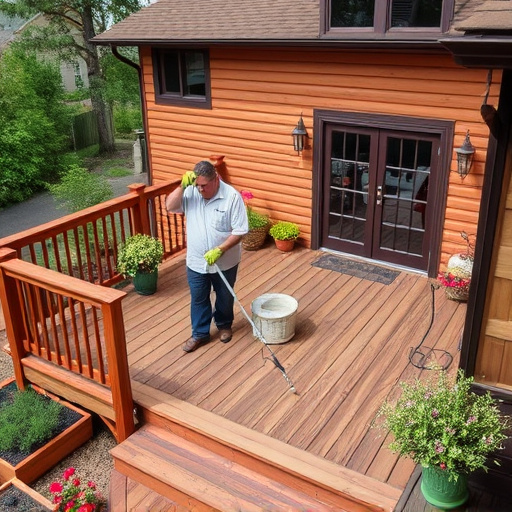Freeze-thaw cycles damage outdoor decks. Use durable deck materials like treated wood, composite options, or stone to prevent this. Composite decking offers low maintenance and fade resistance, while metal is strong and long-lasting. Proper framing, fasteners, drainage, sealing, and annual staining also protect against rot and cracking. Specialized roofing solutions extend deck lifespan.
“Explore the ultimate guide to creating a durable deck that can withstand the harshest of weather conditions, particularly freeze-thaw cycles. This comprehensive article delves into the science behind these cycles’ impact on decks and offers insightful recommendations. From understanding the damage they cause to discovering the most resilient deck materials, you’ll gain valuable knowledge for long-lasting outdoor spaces. Learn how to choose the right materials to ensure your deck’s longevity, providing a robust and maintenance-free surface for years to come.”
- Understanding Freeze-Thaw Cycles' Impact on Decks
- Common Deck Materials and Their Resistance Capabilities
- Choosing Durable Materials for Longevity Against Cycles
Understanding Freeze-Thaw Cycles' Impact on Decks
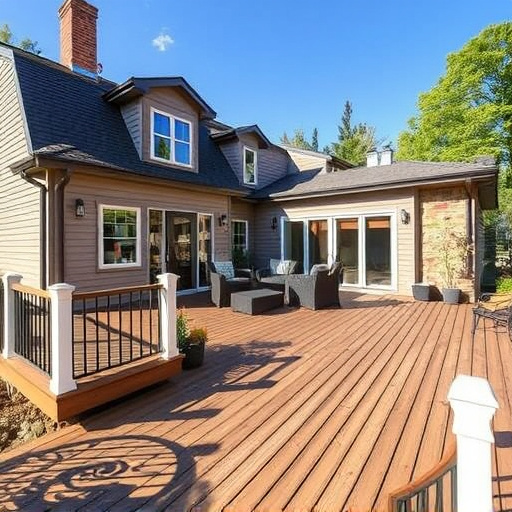
Freeze-thaw cycles pose a unique challenge for outdoor structures, particularly decks. These cyclical changes in temperature create conditions that can lead to significant damage over time. When water seeps into cracks or porous materials and then freezes, it expands, exerting pressure on the deck’s structure. This process, repeated throughout various seasons, can cause structural integrity issues, warping, and even complete deterioration of deck materials.
Understanding these cycles is crucial when selecting appropriate deck materials. Opting for durable, freeze-resistant options such as certain types of wood treatments, composite materials, or stone can help extend the lifespan of a deck. Consulting with roofing experts or siding services professionals who specialize in outdoor structures can provide valuable insights into managing and mitigating the impact of freeze-thaw cycles on your deck’s longevity.
Common Deck Materials and Their Resistance Capabilities
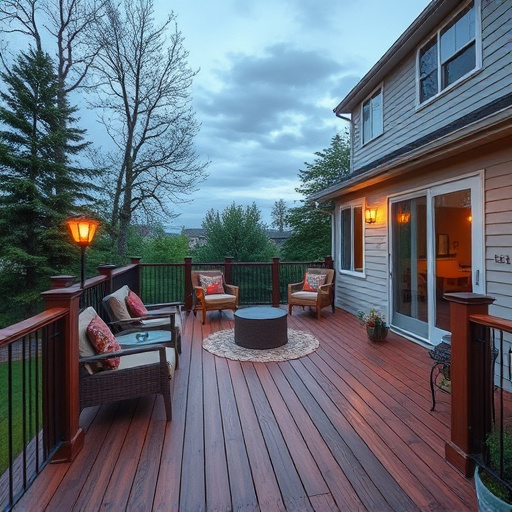
When it comes to deck materials that can withstand freeze-thaw cycles, several options stand out for their durability and resilience. Common choices include wood, composite decking, and concrete—each with its unique advantages. Wood, particularly treated varieties, offers a natural appeal but requires regular maintenance due to its susceptibility to rot and insect damage in colder climates. Composite decking, made from a mix of wood fibers and plastic, is known for its low-maintenance nature and resistance to fading, splitting, and cracking.
For commercial or more demanding residential roofing applications, metal decking can be an excellent choice, providing exceptional strength and longevity. In addition to deck materials, professional roof consulting services play a crucial role in ensuring structural integrity during freeze-thaw cycles. Commercial siding options, like vinyl or fiber cement, also offer protection against moisture intrusion and extreme weather conditions, enhancing the overall durability of exterior structures.
Choosing Durable Materials for Longevity Against Cycles
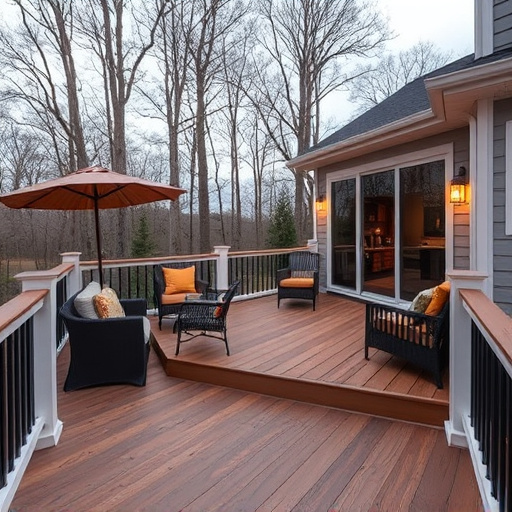
When designing or replacing a deck, selecting durable materials is key to ensuring its longevity, especially in regions experiencing freeze-thaw cycles. These cycles can be extremely damaging, causing wood to expand, contract, and eventually rot or crack. To avoid this, opt for deck materials that offer superior resistance and stability. Composite decking, for instance, is a popular choice due to its ability to withstand extreme temperature fluctuations without warping or fading. This material combines plastic and wood fibers, providing a long-lasting and low-maintenance option.
Another aspect to consider is the deck’s structural integrity, which can be enhanced with robust framing and support systems. Using high-quality fasteners, such as stainless steel screws, and ensuring proper drainage will also contribute to its durability against freeze-thaw cycles. Additionally, exterior home improvements professionals often recommend sealing and staining decks annually to protect them from moisture absorption, a primary cause of wood deterioration. Roofing solutions with built-in protection or roofing services that offer specialized treatments can further extend the life of your deck, ensuring it remains in pristine condition for years to come.
When it comes to building or repairing a deck, understanding freeze-thaw cycles and selecting the right deck materials is paramount. By choosing materials that can withstand these cycles, you ensure your deck’s longevity and minimize costly repairs. This article has explored the impact of freeze-thaw cycles, highlighted common deck materials and their resistance capabilities, and provided guidance on selecting durable options. Remember, investing in quality deck materials now can prevent expensive replacements down the line.
